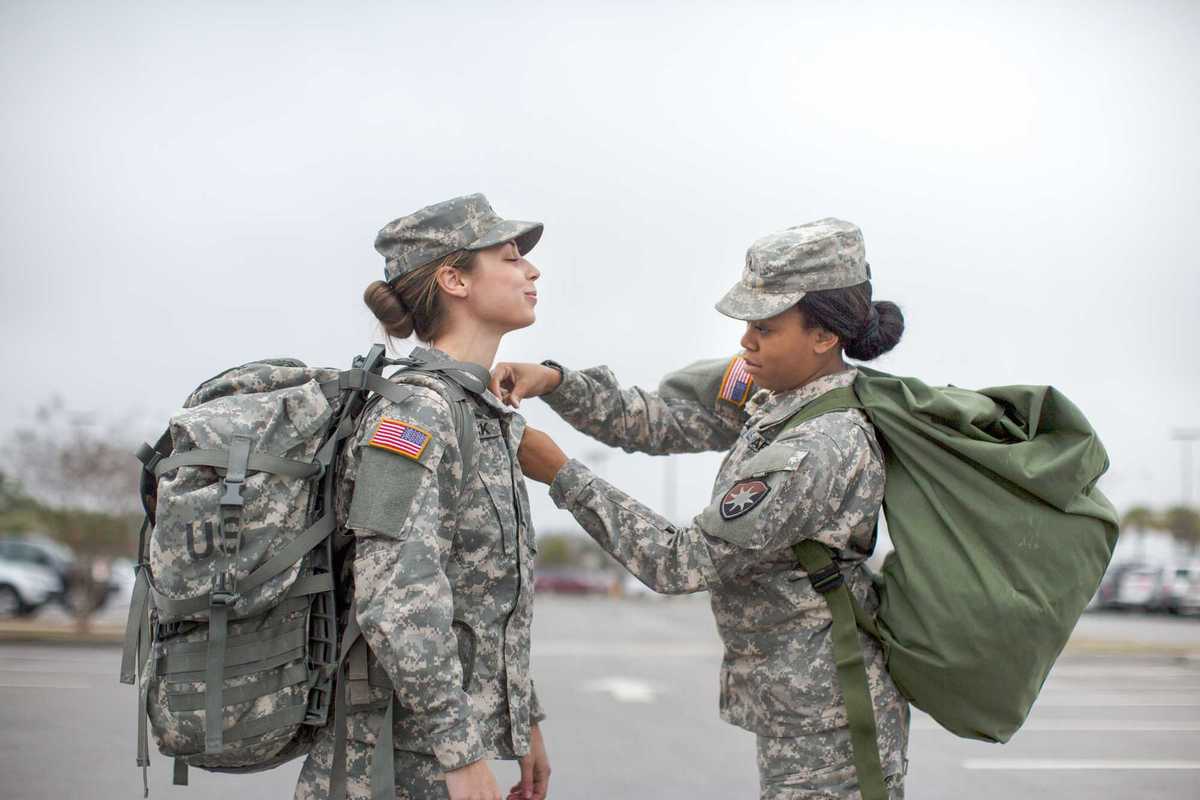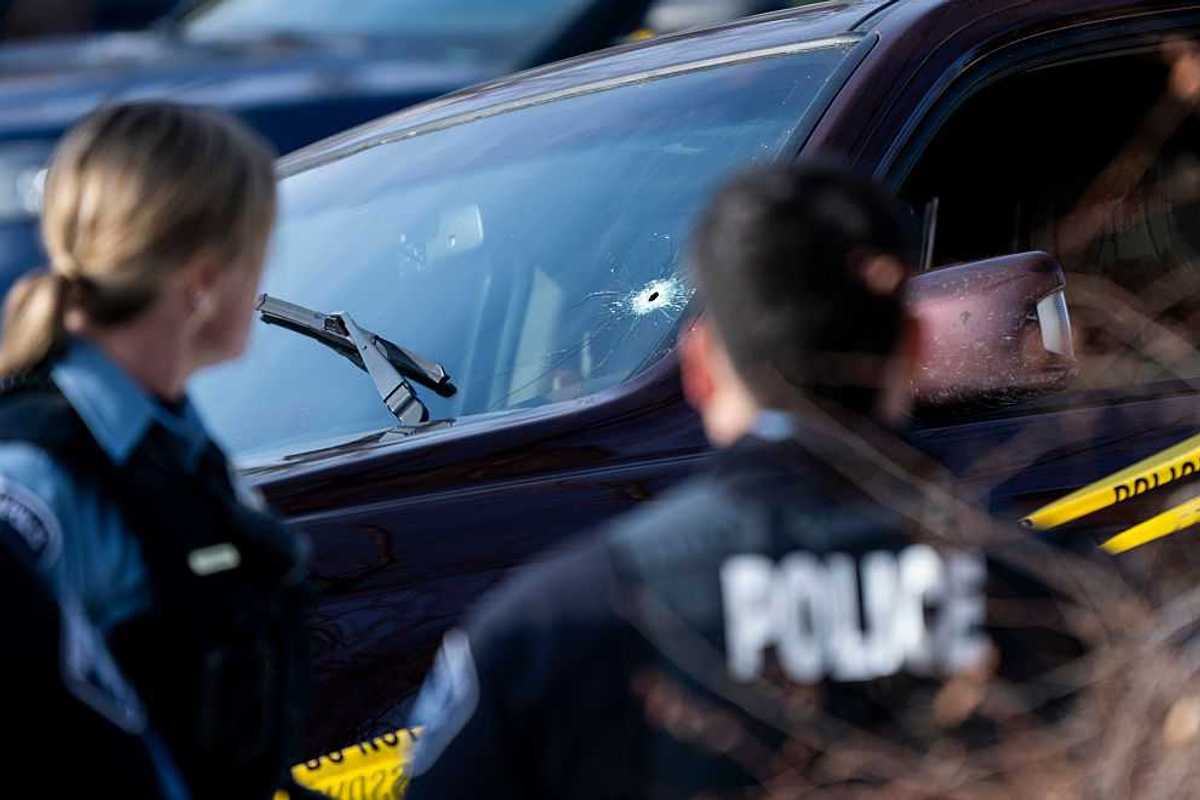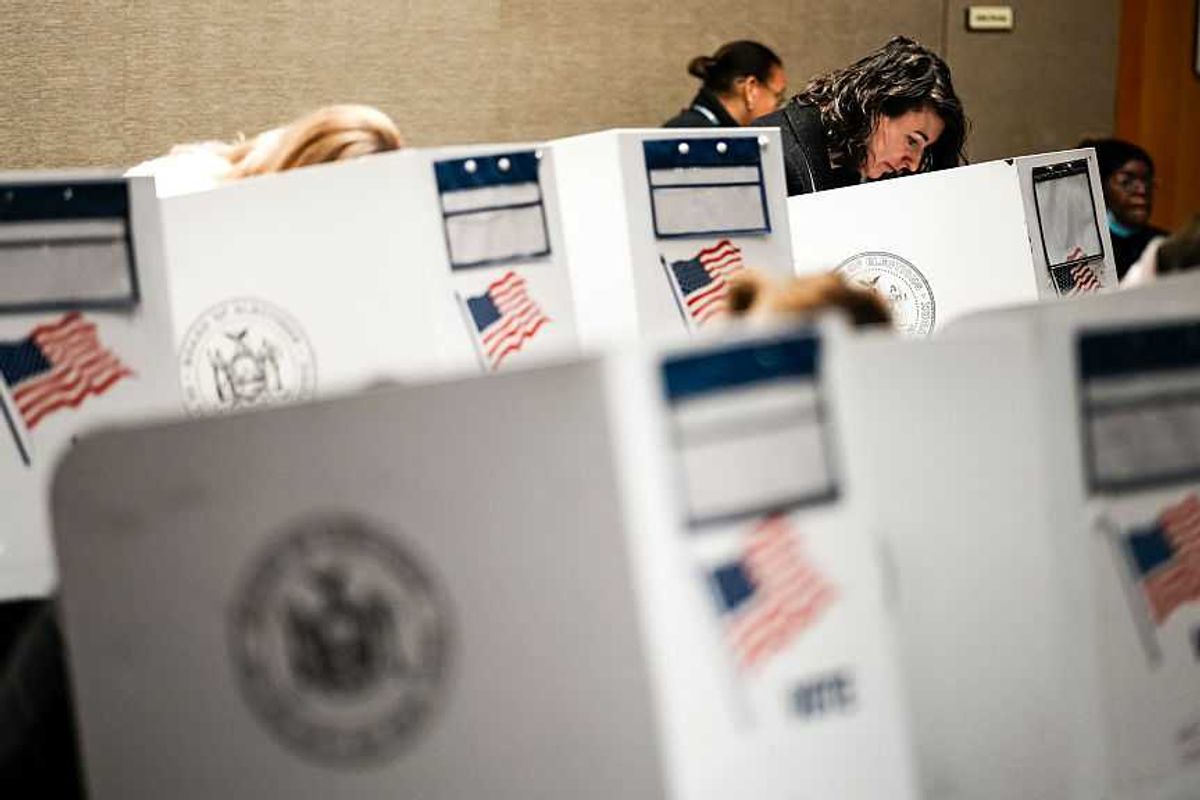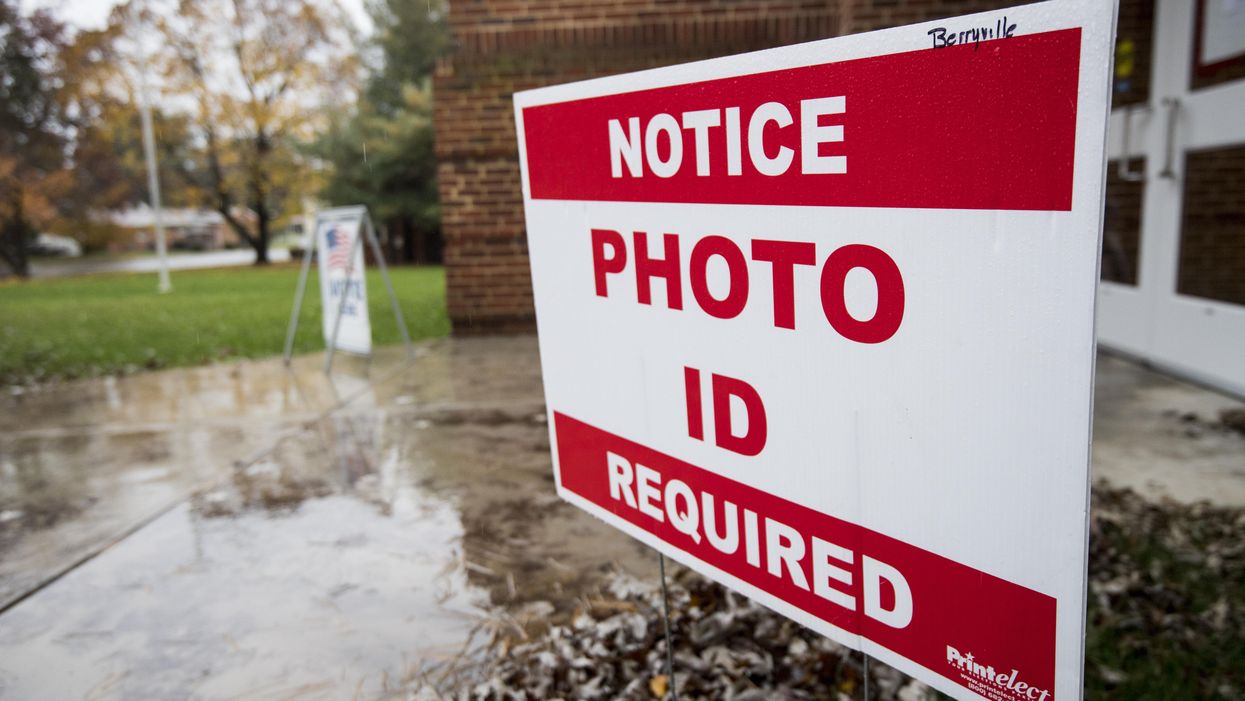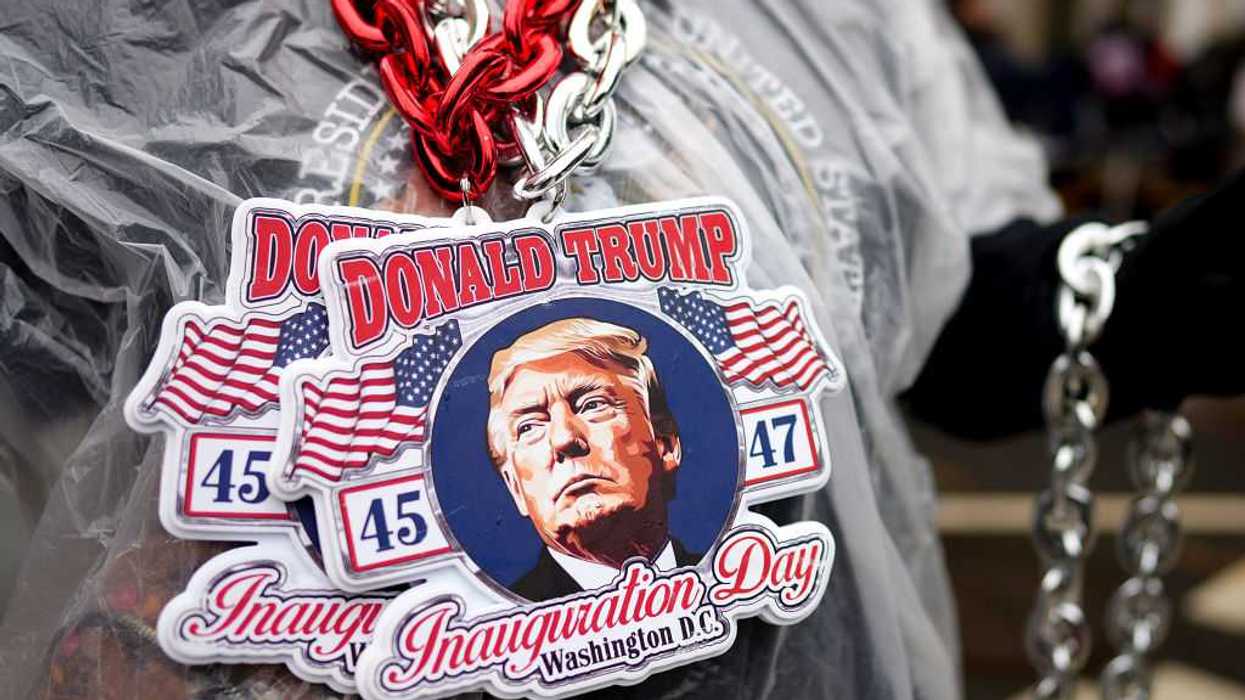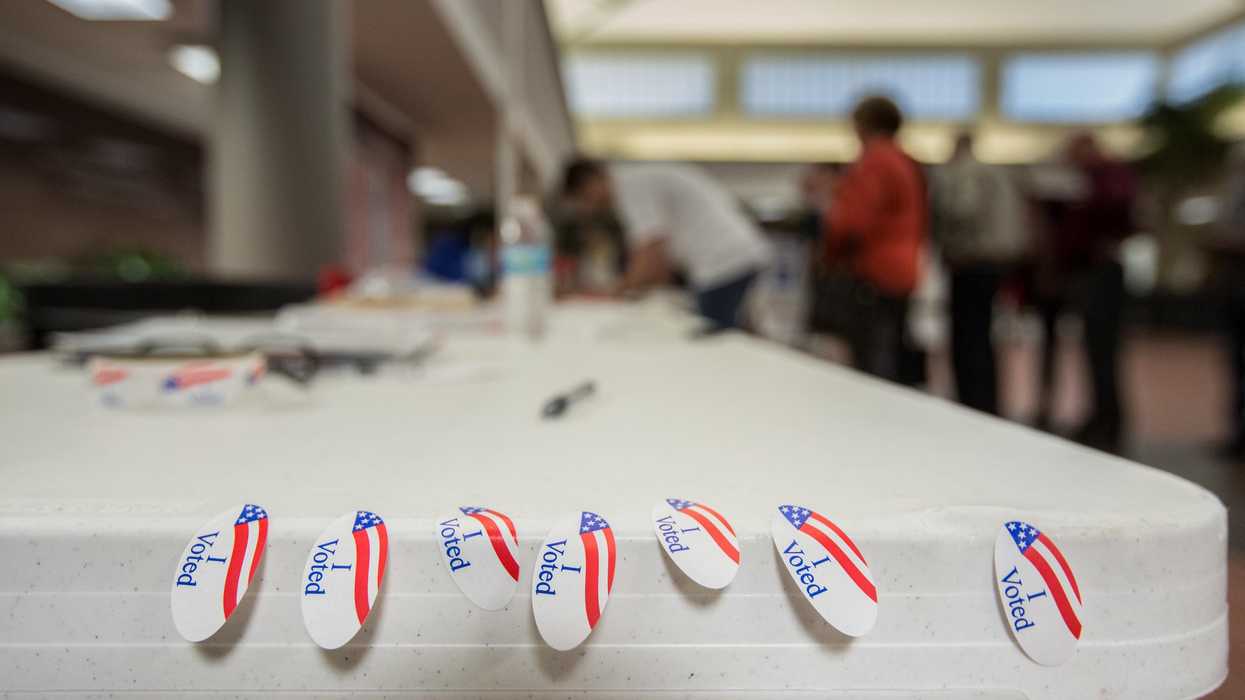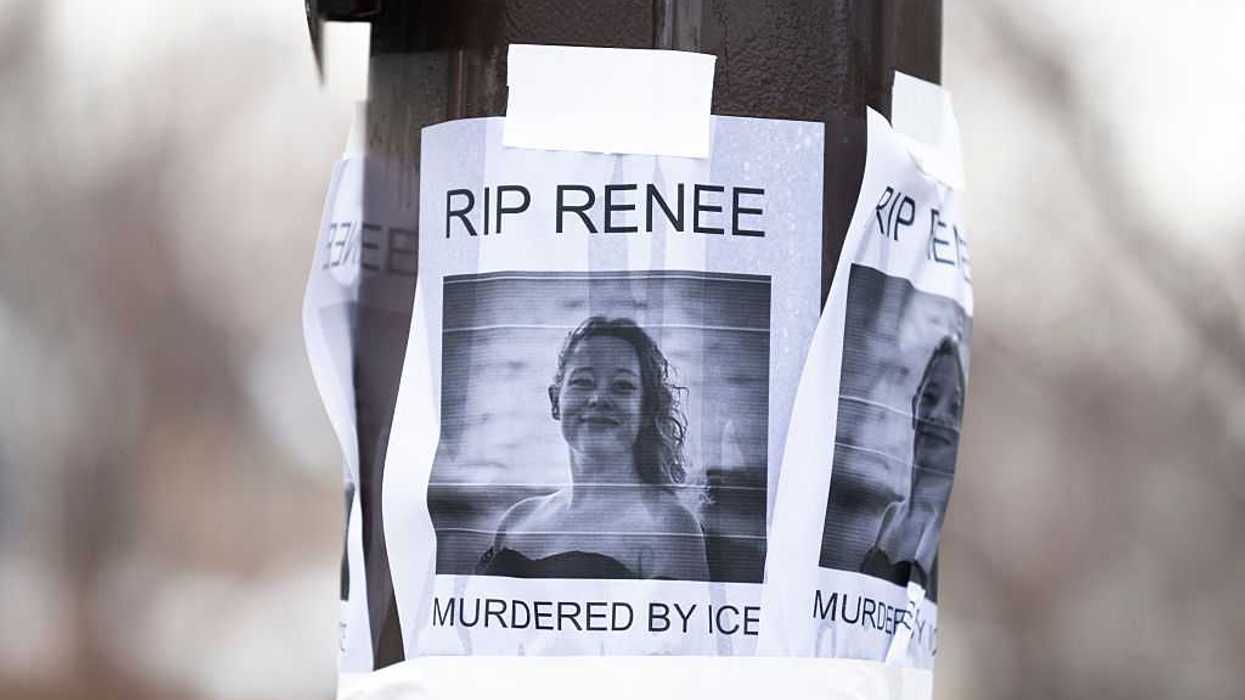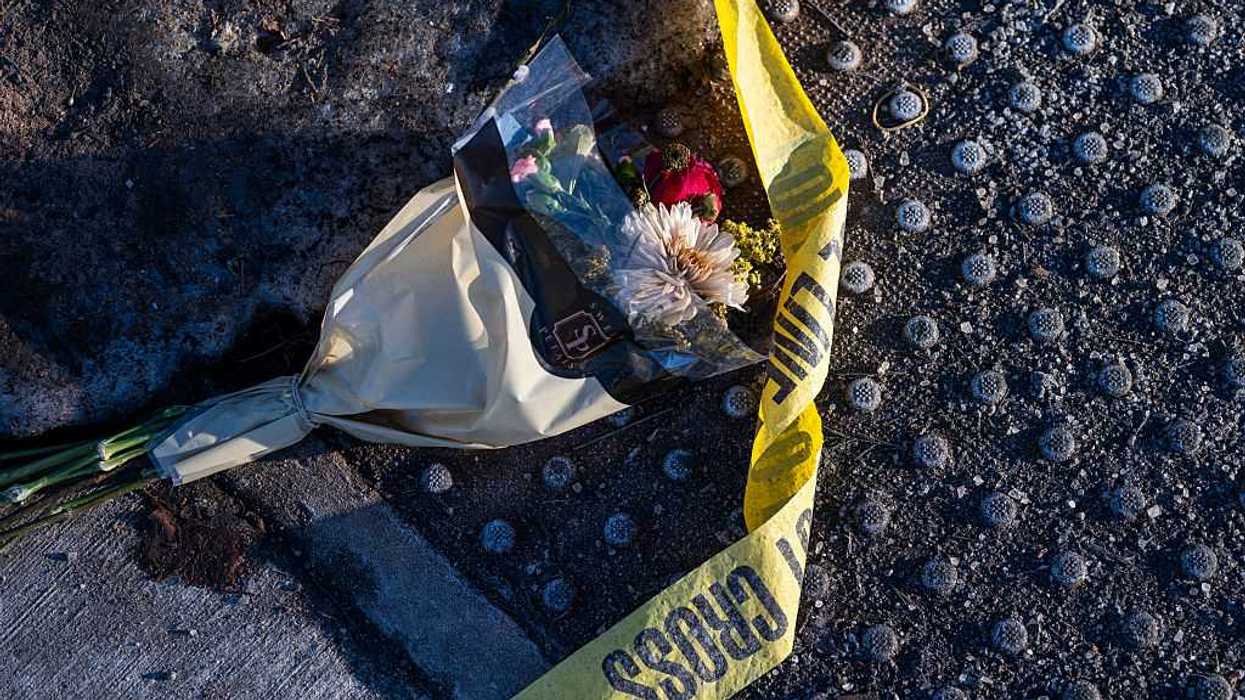Correction: The story has been updated to accurately report the parameters of North Carolina's voter identification law, which is not currently in effect.
The recent ruling against North Carolina's voter identification law, considered one of the most severe in the country, has reignited the debate over requiring ID at the polls.
Two of the three Superior Court judges who heard the case challenging North Carolina's voter ID law ruled it was unconstitutional due to racial discrimination. The law has been on hold for the past two years as legal challenges have been fought in state and federal courts, and this latest ruling is likely to be appealed by GOP lawmakers who crafted the law.
Voter ID has been a hot topic nationally, especially after Democratic Sen. Joe Manchin of West Virginia proposed implementing a federal mandate to show proof of identity before voting. That proposal was ultimately scaled down when it was inserted into the Democrats' revamped election reform bill, dubbed the Freedom to Vote Act. Rather than making ID a requirement, the bill sets certain standards for states to follow if they do require ID at the polls.
Recent polling has shown a majority of Americans, across party lines, favor a requirement to show photo ID at the polls. Proponents say an ID rule helps deter voter fraud, although instances of such malfeasance are rare. Critics of voter ID laws say they pose unnecessary barriers to the ballot box, especially for nonwhite voters, disabled individuals or people from underserved communities.
If North Carolina's ID requirement were in effect, it would be among the strictest in the country. The rule only allows photo identification documents or forms to be used, including a driver's license, passport, tribal ID, certain student IDs and other types of identification issued by the state. Voters can obtain a free ID at their county board of elections.
If a person is unable to present a photo ID at the polls, they must vote a provisional ballot and then return to the county board of elections with an acceptable ID before the canvassing of ballots begins in order to have their ballot counted. Three groups of people are exempted from the photo ID requirement: individuals with religious objections, survivors of recent natural disasters who cannot present their ID because of that natural disaster and people with a "reasonable impediment" to obtaining or presenting an ID.
This combination of accepting a limited set of IDs and not offering an alternative way to verify identity for most voters if they don't have proper identification is not commonly found in the United States, said Liz Avore, vice president of law and policy at the Voting Rights Lab.
Just seven other states have similarly tight rules around voter ID: Arkansas, Georgia, Indiana, Kansas, Mississippi, Tennessee and Wisconsin. In contrast, 15 states and the District of Columbia do not require any kind of ID to cast a ballot.
The remaining states that request voters present ID at the polls have parameters around how to verify the person's identity if they don't have an acceptable form of identification. For instance, in Florida, Missouri and West Virginia, an election official will match the voter's signature with the one on file if they are unable to show ID.
"If there's a desire to have voter ID law in North Carolina, they can do it the way most states do it, which is to allow a wide variety of documentation and to have a backup plan for those voters who don't have ID with them," Avore said. "We don't want to be turning away registered eligible voters at the polls because they don't have their ID with them."
North Carolina has been locked in legal battles over its voter ID laws for nearly a decade. Shortly after the Supreme Court's 2013 ruling in Shelby v. Holder, which struck down the preclearance provision of the Voting Rights Act, the GOP-led Legislature passed a voter ID requirement. Prior to this ruling, North Carolina was one of the states required to get advance approval of changes to its voting laws due to a history of racial discrimination.
Then in 2016, the state's voter ID law was found to be unconstitutional by a federal appeals court, which wrote in its ruling that Republican lawmakers intended the rule to "target African Americans with almost surgical precision."
Two years later, 55 percent of voters approved a constitutional amendment to require ID at the polls. The Legislature then quickly reconvened in December 2018, before the GOP lost its supermajority at the start of the new session, to write the exact parameters of the voter ID rule.
This latest rule was put on hold during the 2020 elections after it was challenged by multiple lawsuits.
Another state-level suit is challenging whether the Legislature even had the authority to put a constitutional amendment pertaining to voter ID on the ballot given Republicans had a supermajority thanks to unconstitutional gerrymandering. That case is currently being considered by the state Supreme Court. A third lawsuit, in federal court, is directly challenging the photo ID rule. That trial is set to begin in January 2022.
In the most recent court ruling on this issue, the Superior Court judges concluded that while the Republican lawmakers were not motivated by racism when crafting the voter ID law, their political intentions did ultimately result in racial discrimination.
"We do not find that any member of the General Assembly who voted in favor of [the voter ID rule] harbors any racial animus or hatred towards African American voters, but rather ... that the Republican majority 'target[ed] voters who, based on race, were unlikely to vote for the majority party. Even if done for partisan ends, that constitute[s] racial discrimination,'" the judges wrote in their opinion.
The judges added in their ruling that other, less restrictive voter ID laws would have sufficed in deterring fraud and enhancing voter confidence without posing undue burdens on voters or discriminating against minority voters.
The Freedom to Vote Act's chances of passing through the Senate remain slim with the filibuster still intact. But if enacted, the bill would set minimum standards for states with voter ID requirements, like North Carolina. The legislation would make a wide variety of photo and non-photo documents acceptable proofs of identity. It would also allow voters without ID to cast a ballot if a witness attests to their identity. Additionally, provisional ballots cast by voters without ID would be counted if their signature matches the one on file.
Another bill being pushed by Democrats in Congress, the John Lewis Voting Rights Advancement Act, would restore the preclearance provision of the 1965 Voting Rights Act so states like North Carolina would need approval from the Justice Department before enacting any voting law changes. However, this legislation also faces an uphill battle in the evenly divided Senate.
